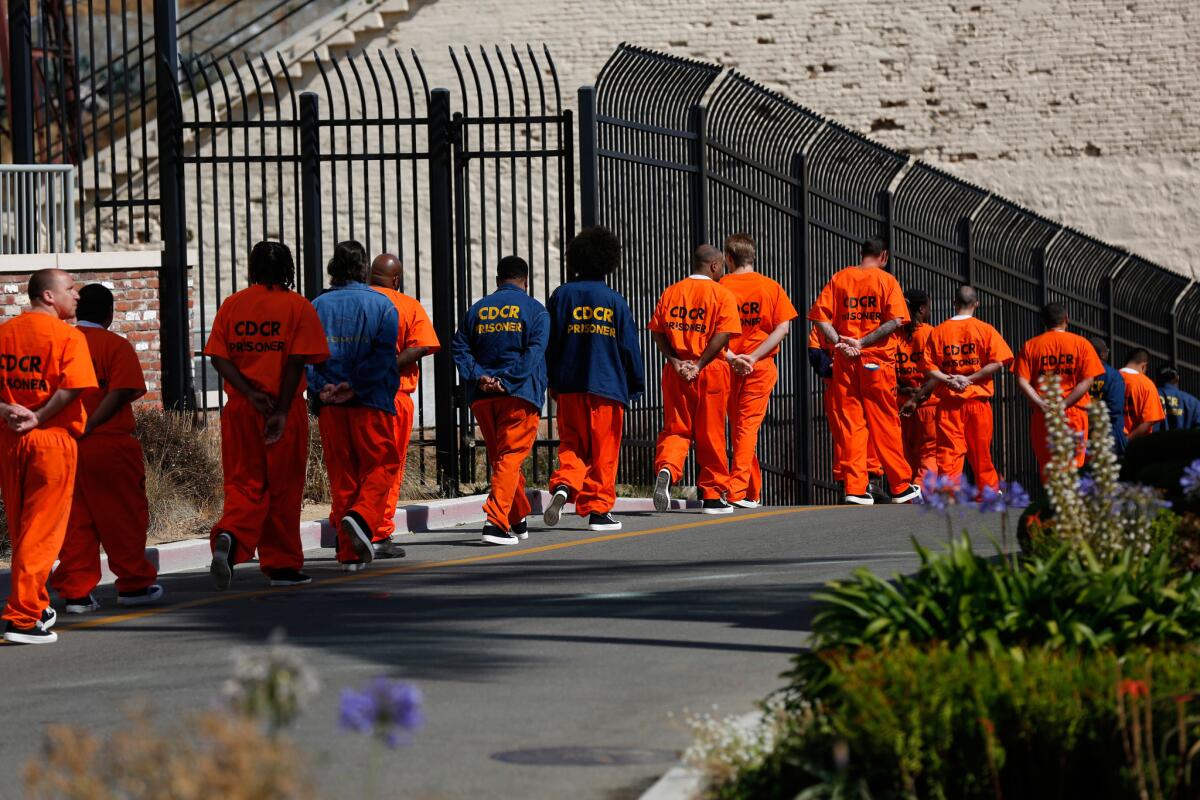Judge suggests California use private prisons to give inmates space amid coronavirus crisis

A federal judge overseeing litigation concerning the treatment of California’s inmates suggested Friday that the state corrections department consider using private prisons as “additional possible real estate” to spread out the population amid the coronavirus pandemic.
Civil rights lawyers are seeking an early release of inmates or alternative housing to protect about 50,000 inmates who have been identified as having medical vulnerabilities that could put them at risk of severe illness or death if they get COVID-19.
U.S. District Judge Jon Tigar, speaking via a court phone hearing, said he knew from his experience with litigation over medical care and overcrowding at prisons that the state used to use private correctional facilities to comply with caps on state prison populations. He also noted that because of a reduction in the prison population the state has essentially discontinued the use of private correctional facilities.
Tigar noted that while he has “a lot of concerns about private correctional facilities,” he said they are additional possible real estate that is “something worth considering.”
Tigar he said wants input from the state, the plaintiffs and others including the unions representing guards and prison workers.
Given the COVID-19 dangers, Tigar said, the parties in the litigation have a “common goal of making these prisons as safe as possible for the inmates, the medical; staff, and correctional staff consistent with the need to respect public safety.”
Tigar said he would not comment on a motion by attorneys seeking the release of inmates with six months left on their sentences until he rules on a motion seeking the release of those with 180 days left to serve that has been submitted.
Seventy-two custody and medical staff at prisons statewide have tested positive for COVID-19 along with 37 inmates according to the California Department of Corrections and Rehabilitation. Three of the inmates are being hospitalized outside the correctional system.
An attorney for correctional workers told the judge that at least one privately owned facility was still being used in California City and is staffed by state employees.
Last weekend, a three-judge federal panel including Tigar declined a motion seeking a mass release of inmates to avoid a deadly toll inside the prisons from COVID-19, saying it was beyond its authority.
The panel did not rule out that lawyers for inmates could eventually win a court-ordered reduction in the state’s 120,000-inmate population to allow more social distancing. The judges in 2009 ordered the state not to exceed 137.5% of the intended capacity of its prisons.
This week, the state launched a 14-day statewide soft lockdown in its prisons amid the coronavirus pandemic and told exhausted prison nurses that if they’re ordered to work 16-hour shifts, they must comply or face reprisal.
Inmates are being fed in their cells but still given access to prison services, exercise yards, supply canteens and phone calls within their own housing groups, the corrections department said Tuesday.
“For the next 14 days,” corrections department Secretary Ralph Diaz said in a prepared statement, “There are going to be a lot of changes within our institutions, but we do it with the overall health and safety of all those who live and work in them, and the health and safety of the public, at the forefront.”
The prison system, which had mandated use of N95 masks only around confirmed COVID-19 patients, has relaxed restrictions and will allow prison workers to bring in their own masks and face coverings for more widespread use.
The moves come after the corrections agency curtailed visits and implemented temperature checks of employees, and planned an early release of about 3,500 inmates.
Tigar has previously asked the state to report whether it can triple the early releases, freeing inmates as much as six months before the end of their sentence. He noted Friday that the state had made a number of arguments against the six-month threshold in a filing. Another jurist, U.S. District Judge Kimberly Mueller, has asked the state to respond to a proposed order to resume admitting inmates into state psychiatric hospitals. The state shut down psychiatric admissions to limit the spread of the virus.
Lawyers with the Prison Law Office filed a new emergency motion two days ago, seeking court-ordered prison reductions, whether through mass releases, use of alternative housing, “home confinement, electronic monitoring and medical furlough.”
More to Read
Sign up for Essential California
The most important California stories and recommendations in your inbox every morning.
You may occasionally receive promotional content from the Los Angeles Times.











